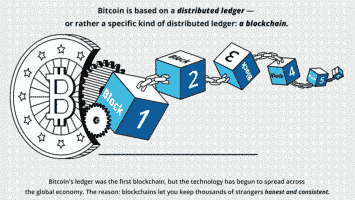on the crypto
In the past months, the Germany has more than once provided support for France on the subject of cryptocurrency, in particular as regards the need to create a regulatory framework capable of channeling them and largely neutralizing their revolutionary streak.
A support which, however, did not prevent the Berlin government from choosing the path of innovation, as demonstrated by the document approved by CDU and CSU, or the two major forces of the coalition that supports Angela Merkel. So let's see the contents, to try to understand what could happen in the near future in Germany.
The CDU and CSU document
Il Official site of the two parties released a document in early July in which CDU and CSU engaged the country in a massive financing plan affecting the blockchain, with the clear intention of helping the creation of services dedicated to the public administration, as well as providing for the creation of a state stablecoin anchored to the euro.
A plan that has the clear intention of favoring innovative startups that have arisen in the country by creating an ecosystem capable of setting the financial conditions for their growth. Everything good? Not really, because just the second direction of the German plan seems to go to create a friction of no small importance with the European Central Bank, still clearly open to the fintech sector.
The hypothesis of a stablecoin seems to impact the ECB
The most interesting and harbinger of consequences of the document, is precisely that relating to the possibility of creating a national virtual uniform, a stablecoin anchored to the euro. It was Nadine Schön (vice president of the parliamentary group) to commit his party with a declaration which, however, seems destined to cause some discomfort in Frankfurt, where the one is also about to arrive Christine Lagarde which has not hidden its favor for digital assets in recent times. Until now, in fact, the central bank has always opposed a certain resistance in the face of a phenomenon that aims at destabilizing existing financial assets and to democratize a sector seen as a real oligarchy.
The roads of Germany and France could be divided on the subject?
It should also be emphasized that precisely on the subject of virtual currencies, one could begin to occur crack in the alliance between France and Germany which has formed over the past few years, with the obvious intention of leading the eurozone.
Indeed, France still seems to be oriented towards an attitude of closure towards digital currencies, so much so as to propose to the rest of the continent a regulatory framework which, although not decidedly contrary to their use, poses a series of stakes which could contain its subversive charge towards traditional finance. If up until a few months ago the Berlin government seemed to share this orientation, the CDU-CSU document seems to give life to a decided shuffling of the cards, with effects that could lead to an ever more evident divergence of positions between Germany and France.



